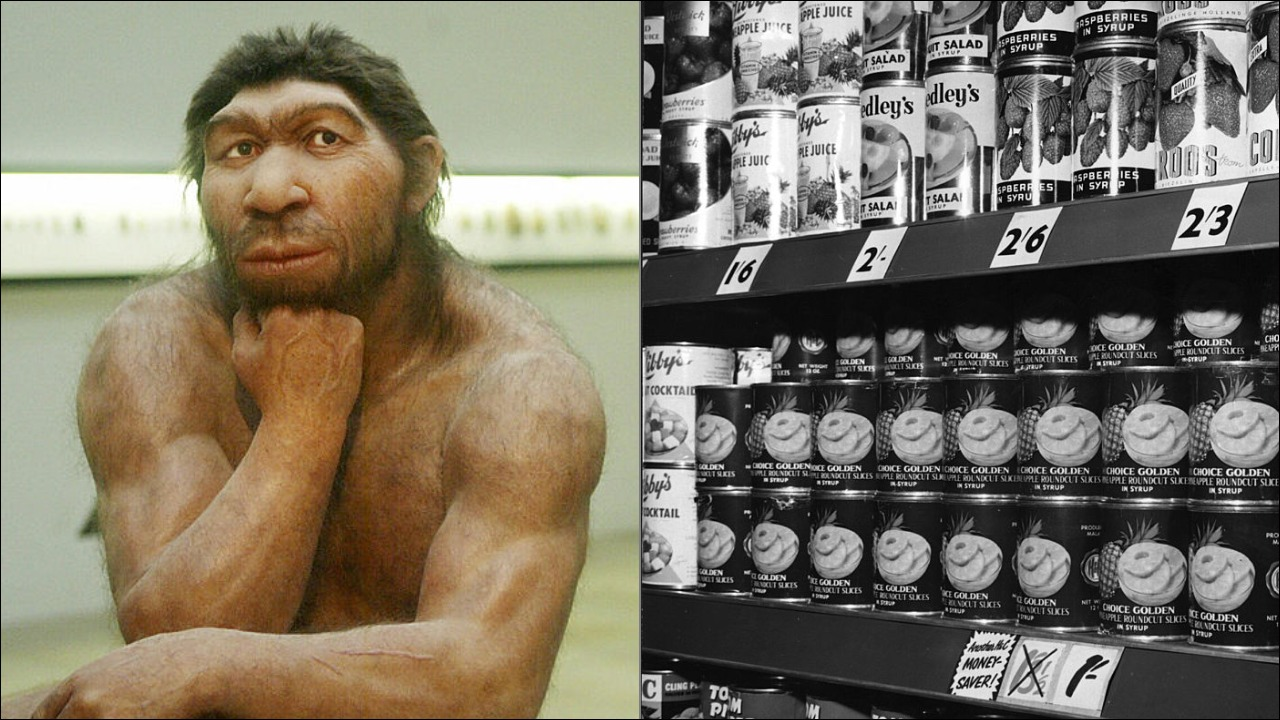The History Of Processed Foods Is Longer Than You Think
Devotees of raw food diets often claim that humans were never meant to eat processed foods, and that our earliest ancestors consumed pure, unadulterated nutrients to survive. But if our ancient relative Homo habilis was able to time-travel to our modern era, they would declare these raw food evangelists full of nitrate-laden baloney. Because in reality, our prehistoric ancestors were the progenitors of processed food!
An excellent article from BBC Future explains that the earliest evidence of food processing can be linked to Homo habilis, a hominid that roamed Africa between 2.4 million and 1.4 million years ago. In contrast to earlier hominin, Homo habilis had teeth that were much too small to rip apart raw animal flesh, a fact that implies they had discovered how to cook meat to make it easily chewable, and that their faces evolved accordingly. In addition to conquering the awesome power of fire, Homo habilis' adoption of tools significantly expanded their diet; by thinly slicing meat and pounding firm, hard-to-chew vegetables into small pieces, these primitive home cooks managed to reduce their need to chew by a whopping five percent.
That might not seem like a lot, but have you ever spent a solid minute trying to chew through an undercooked piece of brisket? By the 45-second mark your jaw will be screaming at you to stop, telling you that no beef is worth the pain. Even a slight reduction in effort makes a difference; over time, Homo habilis' body didn't need to focus as much energy on its face muscles, so while the skull stayed about the same, the size of the face got smaller.
By the time Homo erectus (1.89 million years ago to 108,000 years ago) and Homo neanderthalensis (400,000 to 40,000 years ago) came around, their teeth were relatively tiny in comparison to their big, hulking skulls, implying that these human ancestors had fully embraced the wonders of cooked food. Aside from reducing their need to chew, cooking also allowed them to absorb more calories and nutrients from their food, leading to stronger, bigger bodies and the development of better brains.
When Homo sapiens finally arrived on the scene 300,000 years ago, our species came out of the gate with relatively small teeth, sexy faces, and complex neural networks. If you'd like to read more about how food processing evolved from pounded roots to Twinkies Cereal, check out the full article on BBC Future.
